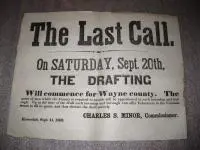Photos via Kenneth Welch
I met Ken Welch a few years ago, and he’s become the guy I call for my John Greenleaf Whittier fix, or if I’m in want of a collection of Victorian fairytales. The next time you’re out on an errand run and forget to pick up a 17th century volume of the history of England, Serpentine Books should have you covered. Whether digging through boxes of forgotten manuscripts or chatting about the value of UK versus US editions of Harry Potter, Welch's enthusiasm for his business and for books is transparent.
How did you start selling books?
It was originally a hobby. When we were younger, my siblings and I would sit in front of the TV all day. Then one day, the TV broke, and we didn't get another for three years. That’s when I first became really interested in books.
What advice would you give to someone looking to start in this business, and where did you go to find advice when you first began?
My advice would be to do the genres that you enjoy reading. The problem when I began was that I sell these very old, vintage books. No one I knew at the time was doing that, and I had no good references. Sure, you can go online, but there’s no guarantee that the prices posted for an item there are accurate. You don’t always know if someone picked that price at random, so you have to use your best judgment. Some people say, why don’t you try to sell some more modern stuff? But I don’t like that, and that’s not what I do.
You do have to have inventory to start a small business, of course. I find inventory from house calls, estate sales, yard sales, bookstores. The problem is first getting off the ground, and getting your name out there as a seller.
Approximately how many books do you sell in a year?
Depends, because you never know what you’re going to find. I once sold a book that was almost everything for that entire year. Usually when doing eBay auctions, I post books with a minimum of at least $25— anything lower isn’t really worth it.
Is eBay the main tool you use for selling?
I’m switching a lot of merchandise to Etsy right now, because you find a lot of people there that you wouldn’t on eBay. And I like the interface as well. At eBay, you’re a reseller, but at Etsy you’re a small business owner. The biggest online marketplace is still eBay, though. You post something on there and people all around the world see it. I don’t use AbeBooks anymore because I don’t find them to be very “people-friendly” at all. I use it as a price guide only.
Do you have a maximum amount that you’ll spend when buying a book for your inventory?
That all depends on what it is. I once spent $1,000 on a book because I knew what it was and I knew someone looking for it. I don’t like to  spend too much— no one does, but everyone overpays sometimes, especially when they’re just starting out.
spend too much— no one does, but everyone overpays sometimes, especially when they’re just starting out.
And the value of books changes too. The Great Gatsby, for example. A few years ago a first edition ran for $3,500-4,000. Now it’s about $1,000. Authors come in waves. Like Stephanie Meyer. A first printing of Twilight used to go for $80, now you’re lucky if you can get that for a four volume set of her books. Gatsby is still a classic, but there’s the people who already own it, and younger people who can’t afford a collector’s edition. Ten years from now you might see the price jump again.
What are some of the challenges you’ve faced in this business?
Inconsistency is hard. You have to make sure you have enough money to pay the bills and buy new inventory…and then there’s liking the book too much and not wanting to give it up. Back to what I said before: do what you enjoy doing, but maybe keep a certain author or genre for your own personal collection.
Is there a genre that seems to sell better than others?
I specialize in fiction and history. There are so many fiction authors that are so old, they’ve become almost irrelevant. I see these ornate, beautifully bound Victorian books, but who’s the author? No one knows or cares anymore…You never know what’s going to be valuable based on the outside. Stuff that looks like crap is sometimes worth the most.
Have you ever found something amazing in an unexpected place?
 Yes. I went to an estate sale, and there were all these damaged books. I picked up one from about 1860 that no one wanted because the board was missing and the condition was so bad. When I got home, I found a Civil War broadside inside of it calling for a draft. It sold for $325.
Yes. I went to an estate sale, and there were all these damaged books. I picked up one from about 1860 that no one wanted because the board was missing and the condition was so bad. When I got home, I found a Civil War broadside inside of it calling for a draft. It sold for $325.
At another estate sale, I got there late and a lot of the stuff had already been gone through. I found this Bible that was completely falling apart. It was a family Bible, from a family that moved to Massachusetts from North Carolina, and it had a Confederate soldier’s account of the war written in it. Because of that one little thing— a paragraph that mentioned the battle he was in and where he was wounded— someone bought it for $260, probably for genealogy.
How competitive is this?
It can be competitive. I have some collecting friends who say, “oh, great find” when you tell them you got a certain book. But others are jealous as hell. When you ask what they found at a sale or in a storage locker, they get very reclusive. They don’t want to let you know what they found and where. I always just enjoy talking about finds because it's interesting to see what's out there. But in any collecting, there’s always competitiveness.
Will people always buy books?
I think so, yes. Even the much older ones; some people love them. The Kindle and other tablets get people to read, but there’s something about holding a real book.
I feel like I’m prolonging the life of some of these books, since some of them would probably just be thrown away. I once pulled a historical chronicle from 1792 out of a recycling bin at a house sale.
What are your long-term plans for Serpentine Books?
Grow my collection, grow my customer base. I love meeting people, so I might switch to an actual storefront. It’s great when people find something that they’ve been looking for at your booth and get excited. I remember one time, a girl walked up with all these Peter Pan tattoos, and I had a first edition copy of Adventures in Kensington Gardens, which has the first appearance of the character Peter Pan. She walked away a happy person.
You can find Ken and his books on:

About the author
Leah Dearborn is a Boston-based writer with a bachelor’s degree in journalism and a master’s degree in international relations from UMass Boston. She started writing for LitReactor in 2013 while paying her way through journalism school and hopping between bookstore jobs (R.I.P. Borders). In the years since, she’s written articles about everything from colonial poisoning plots to city council plans for using owls as pest control. If it’s a little strange, she’s probably interested.








